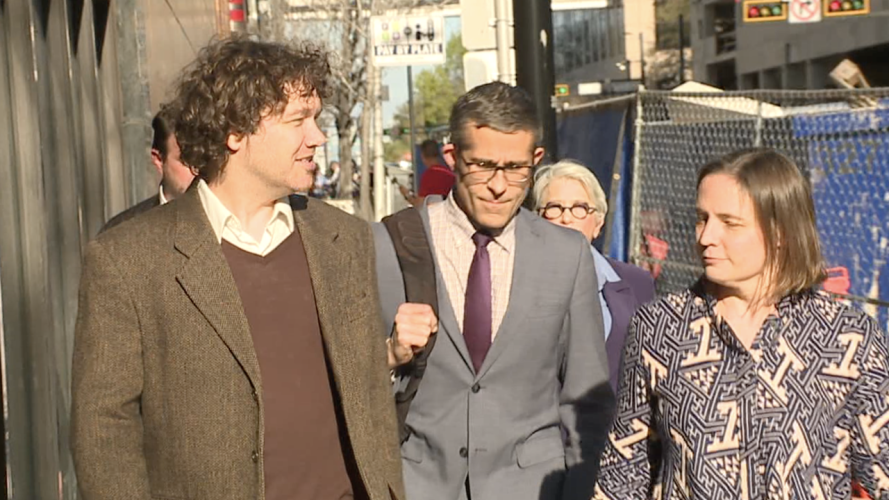TAMPA, Fla. — A United States District Judge has dismissed Wiretap Act counts against Timothy (Tim) Burke stemming from an unauthorized computer access case.
Judge Kathryn Kimball Mizelle of the Middle District of Florida, Tampa Division, concluded to dismiss all Wiretap Act counts, concluding "Burke does not dispute that he acquired the communications, but instead whether he did so consistent with the Wiretap Act exceptions. The government’s arguments (and I assume evidence) are that he did not."
Case summary
Burke was charged in February of 2024 with violating the Wiretap Act for allegedly accessing and downloading private livestreams from media companies, then sharing some of them.
MORE: Councilwoman claims FBI search of family home was related to husband's work as journalist
The government argued that it only had to prove that Burke intentionally received a communication with a device; if Burke wanted to claim an exception (such as public accessibility), that was his burden.
Burke argued this interpretation made the law unconstitutional because it could criminalize ordinary internet activity (like watching YouTube or visiting a website).
Bobby Block with the First Amendment Foundation said a group of organizations came together in Burke's defense. He argued the government's wiretap theory was not supported in law.
"We put together a large coalition and we suggested that it was absolutely wrong and we're absolutely thrilled that we changed the judge's mind and that a law which should be used for privacy is being twisted was used against news gathering which is protected by the First Amendment," said Block.
Block applauded the judge's decision and said the ruling is a significant victory for free expression and press freedom.
Burke's attorney, Mark Rasch, said Burke is an award-winning journalist with decades of experience.
Rasch sent Tampa Bay 28 the following statement:
The court recognized that these issues go beyond merely resolving a dispute among the parties, but was significant for a wide variety of First Amendment, freedom of speech, and technology groups. In an unusual move for a District Court judge, the court requested that representatives of these groups - suggested by both the government and the defense - provide "friend of the court" briefs to answer legal, policy and technical questions. The opinion itself shows that this approach helped the court understand some of the technical issues associated with the case and helped it resolve these issues.
Read full court document
Tim Burke ruling by ABC Action News
First Amendment concerns
If the Wiretap Act is read the way the government wants, it could criminalize normal online activity and chill free speech.
Example: If all it takes to violate the law is “intentionally acquiring” a communication with a device, then anyone streaming a video or reading online news could technically be prosecuted.
The judge ruled that two exceptions in the Wiretap Act must be treated as elements of the crime (things the government must prove), not just defenses:
The defendant was not a party to the communication (like, they weren’t the intended recipient).
The communication was not readily accessible to the general public (like, it wasn’t something open like a YouTube video).
This way, the government must prove from the start that Burke accessed something he wasn’t supposed to.
Impact on his case
The indictment against Burke did not include these required allegations.
So, the judge dismissed the Wiretap Act charges (Counts 8–14) but without prejudice, meaning the government can fix the indictment and file again.
What now what next
The government has three options:
Drop the Wiretap Act charges and continue with other charges.
Appeal this ruling to a higher court.
File a new indictment that includes the missing elements and proceed to trial.

U.S. Coast Guard finds 4 missing Polk County boaters alive after their boat capsized
Officials said the missing boat capsized about 26 miles offshore, and all four occupants are alive.





